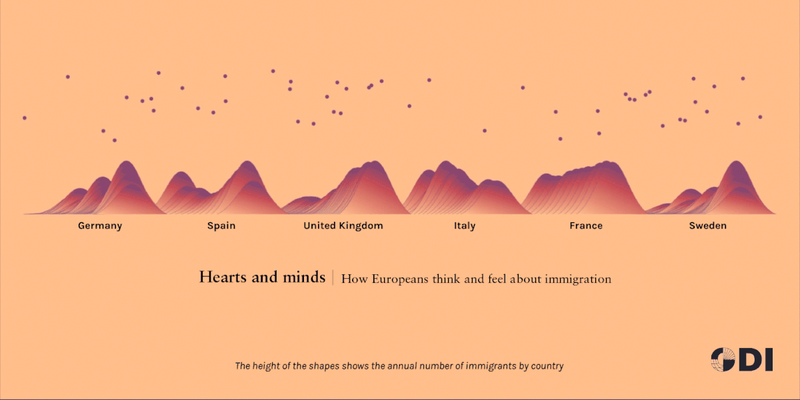This briefing presents an overview of the key features of migration and asylum policy in the UK, recent trends in migration patterns, and public perceptions and political narratives on refugees and other migrants:
- Most Britons consistently overestimate the number of migrants in the United Kingdom (UK). In 2019, refugees and other migrants accounted for 14% of the UK population, yet the majority of Britons assume that 27% of the UK population are migrants.
- The UK is among European countries with the most positive attitudes towards immigration. While Britons hold more negative attitudes towards refugee assistance, there are signs in recent polling data that this is changing.
- Since the European Union (EU) referendum, immigration has ranked as a less important issue for the public. Concerns about immigration have fallen to their lowest levels in two decades. Attitudes towards migrants have also shifted from mostly negative to mostly positive, with a notable drop in negative attitudes.
- Public narratives on refugees and other migrants are polarised between a ‘threat narrative’ to culture, wealth and security, and a ‘positive narrative’ emphasising the potential benefits of immigration to culture, the economy and society.
- Businesses could do more to engage with immigration and highlight the shared benefits of labour mobility for host communities and migrants alike. Migrants have a positive effect on businesses and the wider economy, with a 1% increase in the migrant share of the population creating a 2% increase in income per head.
This briefing is part of a wider project supported by the IKEA Foundation aimed at supporting public and private investors interested in engaging with migration and displacement.
This briefing is an update to the first edition, which was published in November 2019.
About the series
Through a series of activities, dialogues and innovative communication and outreach initiatives, Public and political narratives on refugees and other migrants: implications for action maps recent research and evidence on public attitudes toward refugees and other migrants.
Hearts and minds: how Europeans think and feel about immigration

Explore our data visualisation: Hearts and minds: how Europeans think and feel about immigration which builds on this ongoing research, supported by the IKEA Foundation, analysing public and political narratives and attitudes towards refugees and other migrants in Europe.
Related listening
This podcast dissects attitudes and approaches to immigration across Europe, highlighting how political narratives are often at odds with public opinion.







